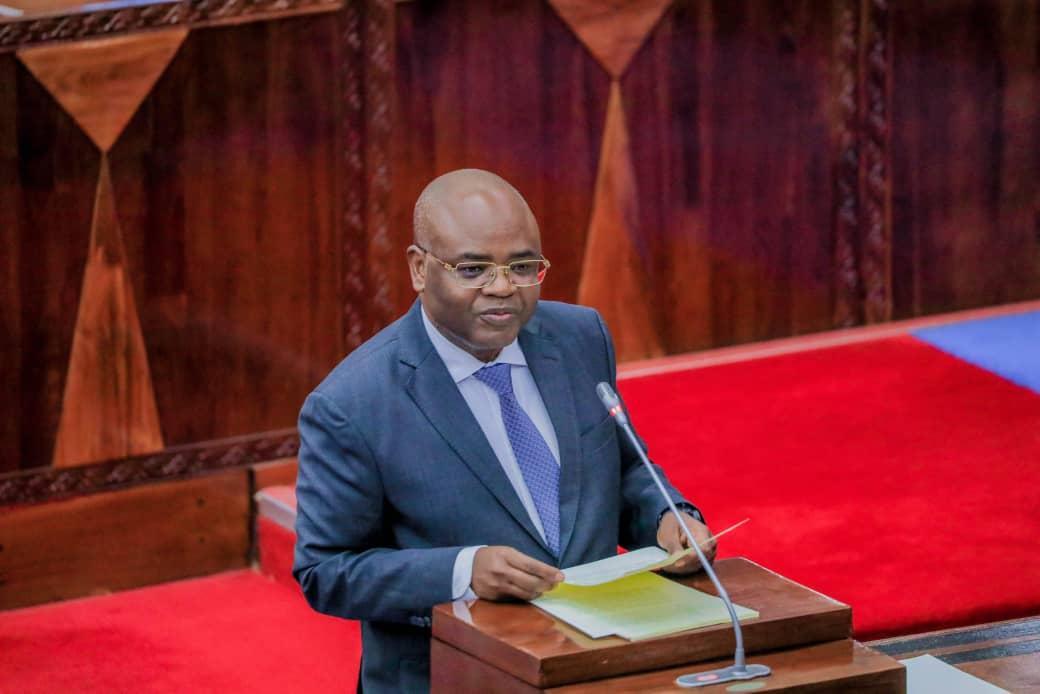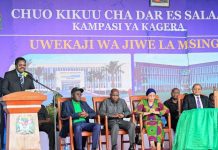Africa-Press – Tanzania. THE government has unveiled five strategic priorities for the Office of the Treasury Registrar (OTR) for the 2025/2026 financial year, aimed at enhancing the efficiency of public institutions, improving oversight of public assets and boosting non-tax revenue collection.
The priorities were presented to the National Assembly yesterday by Minister of State in the President’s Office (Planning and Investment), Professor Kitila Mkumbo during the tabling of his 2025/2026 ministry’s budget proposal.
In the new budget, the minister has requested 148.63bn/- to implement key programmes and initiatives beginning July 1st, this year.
A central element of the OTR’s agenda is the rollout of a 25-year Long-Term Strategic Plan, covering the period from 2025/26 to 2049/50.
The plan is expected to serve as a guiding framework for public investments, state asset management and the country’s broader economic direction in alignment with the national vision.
Prof Mkumbo said that the government will continue to evaluate and monitor stateowned assets under the OTR’s management including those previously privatised, such as farms, factories, residential properties and land plots.
“The goal is to ensure that these resources are managed efficiently and contribute meaningfully to national development,” said Prof Mkumbo.
To enhance efficiency, the government is also prioritising the use of ICT systems in revenue collection and asset management.
The OTR is currently developing a digital dashboard to improve operational efficiency, enable real-time data access, increase transparency and optimise the management of non-tax revenues.
Public institutions have been encouraged to budget for investments in integrated ICT systems that support these efforts.
In addition, the OTR will intensify efforts to strengthen the governance structures of public institutions, subsidiaries and companies in which the government holds shares.
This includes implementing comprehensive guidelines covering the roles and responsibilities of board members and government representatives in partially state-owned entities.
These guidelines include; Treasury Registrar’s Circular No 1 of 2023, the Government Expectations and Roles of Board Members Manual, Board Performance Evaluation Framework as well as Guidelines for Representatives in Minority Government Shareholding Institutions.
To support its mandate, the OTR will also invest in staff capacity building, aimed at improving productivity and the qualityof-service delivery.
On the revenue side, the government has set an ambitious target for the OTR to collect 1.56tri/- in non-tax revenue in the 2025/26 fiscal year up from 1.113tri/- approved for 2024/25.
The projected revenue will come from various sources, including dividends from public corporations, 15 per cent contributions from gross revenues, income from the TTMS system and loan repayments, interest and other returns.
As of March 2025, a total of 664.53bn/- had already been collected equivalent to 60 per cent of the annual target and 86 per cent of the target for that reporting period.
This strong performance is largely credited to enhanced ICT integration, which has improved revenue monitoring and accountability.
Key platforms now in use include PlanRep, ERMS, eWatumishi and upgrades to the MUSE system.
Prof Mkumbo noted that these reforms have improved access to accurate, real-time data on public revenue and expenditures thereby enhancing transparency, accountability and fiscal efficiency.
“We are confident that the 2024/25 revenue target of 1.113tri/- will be met, especially as we expect a substantial portion of the collections to be made in the fourth quarter,” he told House
For More News And Analysis About Tanzania Follow Africa-Press







